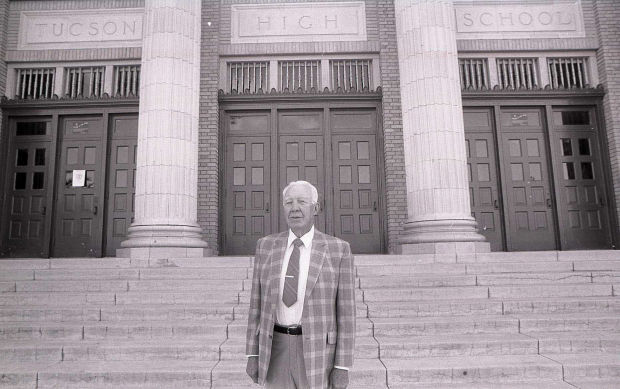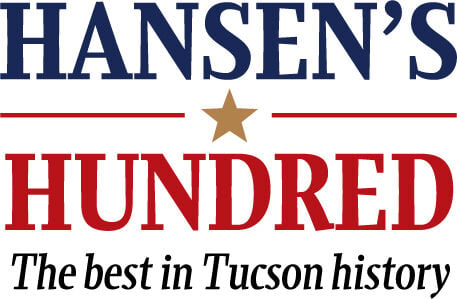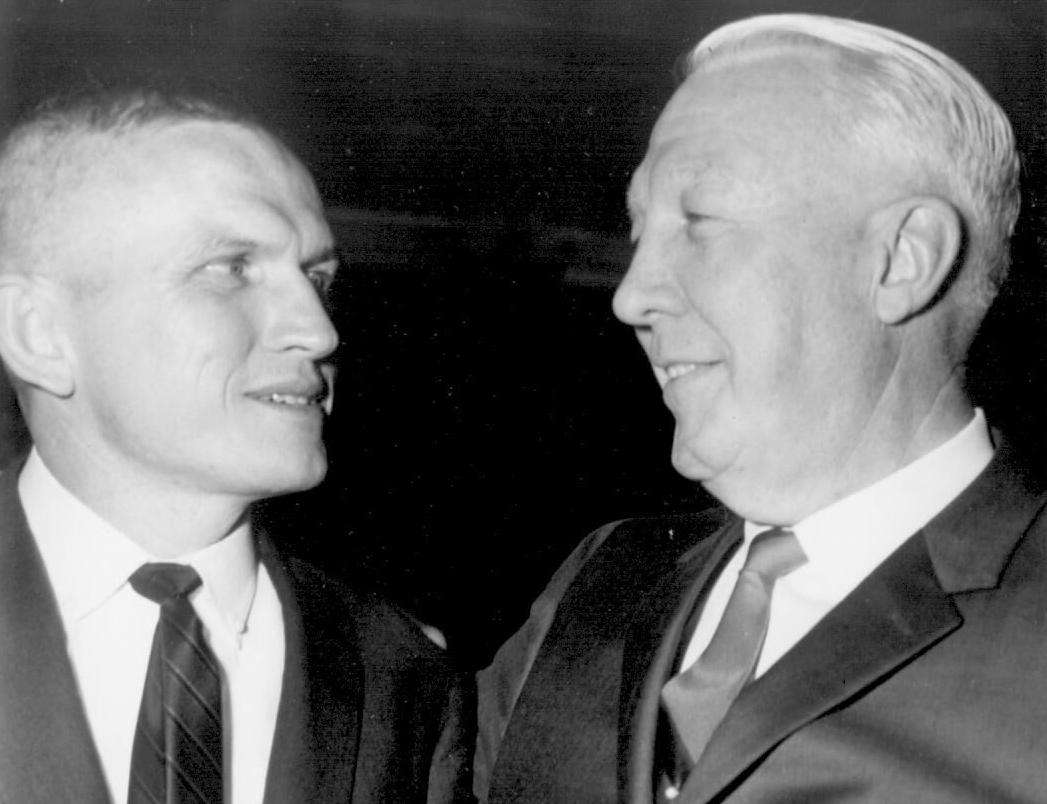The decision of Rollin Gridley’s life came in the summer of 1924 on a train from Albuquerque to Tucson. He was bound for San Francisco, planning to enroll at the University of Cal and play football for the Bears.
But between Albuquerque and a stopover in Tucson, Gridley felt ill. Maybe it was the flu. Maybe food poisoning. Maybe serendipity. He never knew. The young man from Janesville, Wisconsin, checked into a Tucson hotel and, when feeling better, walked a mile or so to the small University of Arizona campus.
He watched the UA football team in a training camp workout and introduced himself to coach Pop McKale. McKale was impressed. Gridley was about 6 feet 2 inches and 200 pounds. All muscle. A big man in the 1920s.
McKale persuaded a few UA football players to accompany Gridley back to his hotel, encourage him to stay in Tucson and play for the Wildcats. They were successful.
Gridley not only became a starting end for Arizona, he was a straight-A student who was offered a teaching and coaching job at Tucson High School in 1927.
After returning home to Wisconsin to marry his girlfriend, Francis — they were married for 63 years until her death — Gridley spent a week driving back to Tucson. Over the next 22 years, he became the most successful coach in THS history, if not the history of Arizona prep football.

Rollin T. Gridley is on familiar ground in 1983 when he talks about Tucson High School.
Gridley, No. 21 on our list of Tucson’s Top 100 Sports Figures of the last 100 years, coached the Badgers to state football championships in 1937, 1942, 1943, 1944 and 1945. His clubs built a state-record 32-game winning streak. Beyond that, he coached Tucson High to the 1934 state basketball championship.
The list of those Gridley coached at THS is a who’s who of the history of Tucson prep football: Joe Batiste, Karl Eller, Fred Batiste, Fred Enke, Lee Carey and Oscar Carrillo.
When Gridley retired from coaching in 1947, accepting a role as THS’s vice principal and athletic director — his football record was 90-26-9 — he relayed the credit elsewhere.
“I was successful because I had wonderful boys to work with," he said. “No coach ever had better talent. I’m indebted to Pop McKale for the influence he had on me."

Rollin T. Gridley
Honored that summer for his coaching career, more than 150 Tucsonans attended a banquet at the Pioneer Hotel. They had secretly donated enough money to buy Gridley a 1948 Chevrolet Fleetmaster sedan.
He broke down, emotional, while giving his farewell-to-coaching speech.
Gridley, whose father, Albert, was a road engineer in the early 1900s, helping design many of the first highways in Wisconsin, had encouraged his son to pursue a career in education. Message received.
After leaving coaching, Gridley was named the first principal at Catalina High School, 1955. He made such an impact in the 15 years he spent at Catalina that in 1974, TUSD named Gridley Junior High School after him. A few months after his death in 2000, Tucson High named its football facility “Rollin Gridley Stadium."

Those who played for Gridley spoke as much about his character as his coaching success. When Apollo astronaut Frank Borman, one of Gridley’s quarterbacks at THS, wrote his biography in the 1980s, he included a story about a football game at Douglas High School in the mid-1940s.
According to Borman, about 40 THS players were seated for a pre-game lunch at the Gadsden Hotel. But a hotel official told Badger junior Morgan Maxwell Sr., the team’s only Black football player, “we do not serve coloreds."
Maxwell left the hotel alone. Gridley objected but was rebuffed. He instructed the rest of the Badgers to leave the hotel.
Once outside, Gridley told his team, “We all eat together."
While the team gathered in a nearby park, Gridley and an assistant coach went to a grocery store and bought bread, baloney, mustard and mayonnaise. They all ate baloney sandwiches in the park.
“All of the boys were sons to him, whether bench-warmers or star players," said Borman. “He taught us discipline. We were so fortunate to play for a man of his character."








